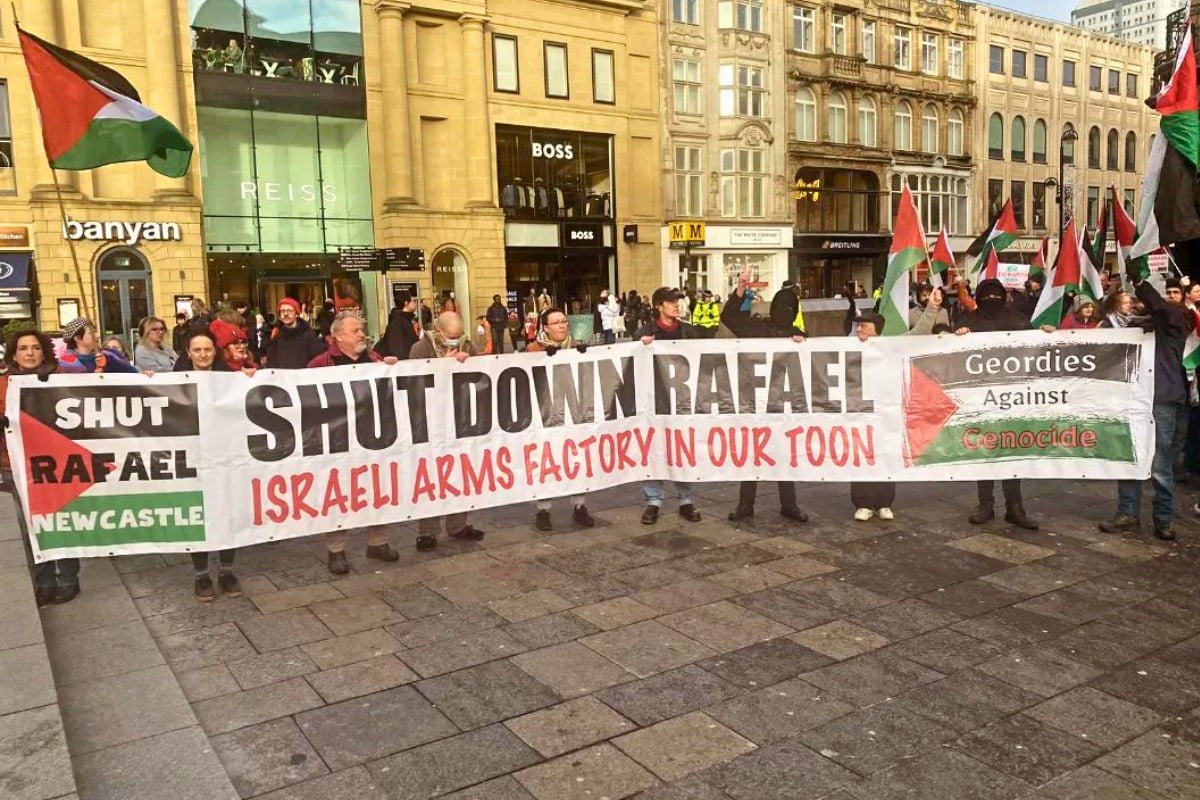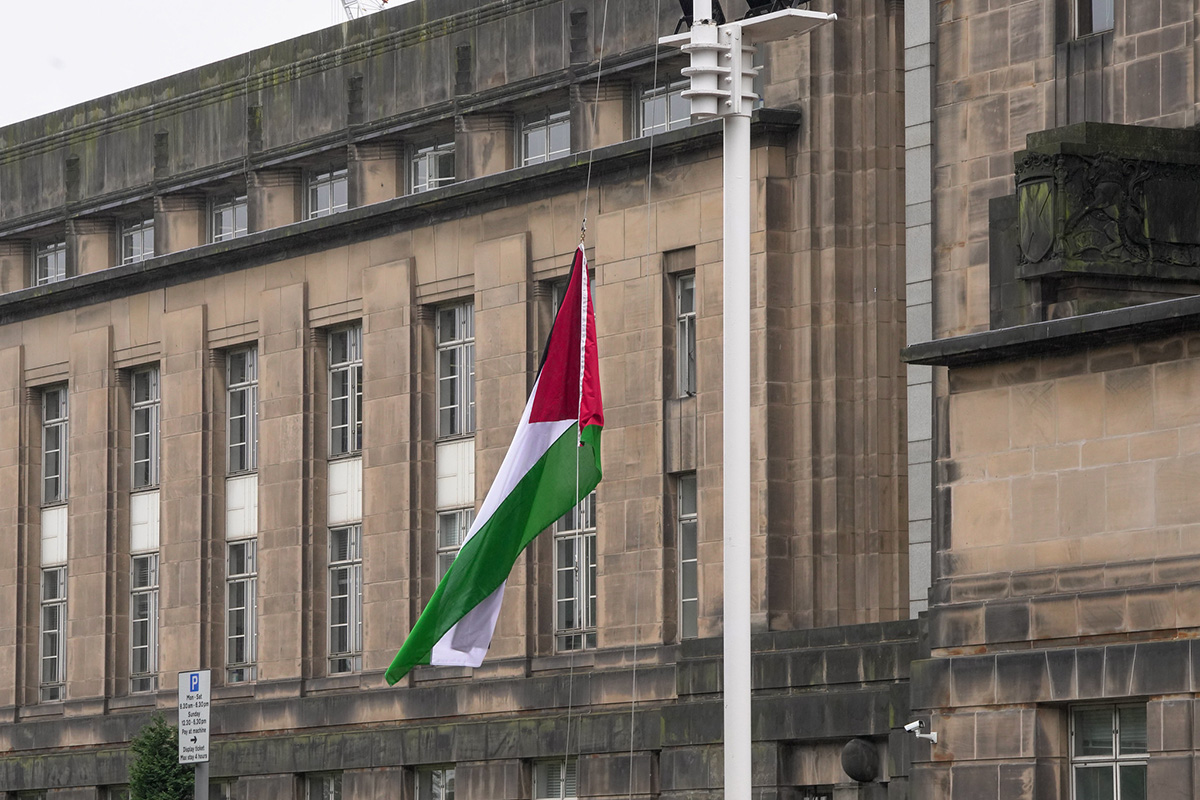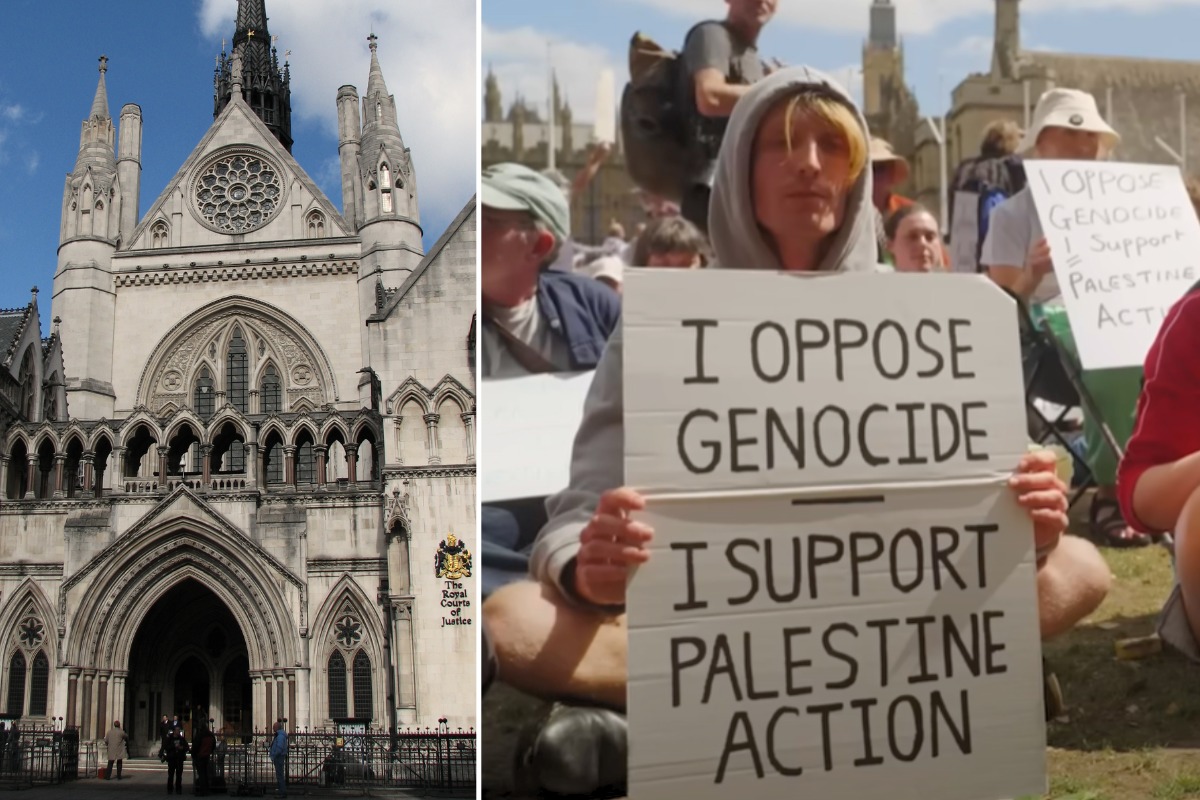The Shut Down Rafael (SDR) campaign aims to shut down an Israeli-state-owned arms factory in Newcastle. We were involved with it from its inception.
We have long enjoyed a comradely and productive relationship with North East Against Racism, the group who spearheaded the campaign. We hope to continue this friendly relationship in future, and wanted to explain our thinking regarding the SDR campaign in this open letter.
We hope our letter is received in the spirit it was intended: healthy debate on tactics for how we can free Palestine, and the whole of the world’s working class, by overthrowing capitalism and building a communist society in its place.
We want to make clear from the off that we respect the bravery and commitment of those activists seeking to shut down the factory. They are driven by a burning desire to do something to help the Palestinian people.
There has been an increase in police repression against the campaign recently, and we wholeheartedly condemn the police and their role in suppressing the Palestine solidarity movement.
[Editors’ note: A mistake was made in the uploading process, and an earlier, longer version of this open letter was published online. This previous draft contained errors and ambiguities, which were removed for the final draft included in the latest issue of The Communist. We apologise for this mistake, and have corrected the text here to bring it into line with that in our paper. We stand by the substantive political points outlined in the article below, and would like to encourage a comradely discussion over the important questions that our comrades have raised.]
View this post on Instagram
From the beginning, we argued that the campaign should aim to reach the workers in the factory, to engage them in the campaign.
Instead of attempting to shut down the factory from the outside, the campaign should seek to persuade the workers to go on strike on a political basis – to refuse to allow weapons to be manufactured in Newcastle that could feed the Israeli war machine.
We argued for campaign members to pass motions about it in our own unions.
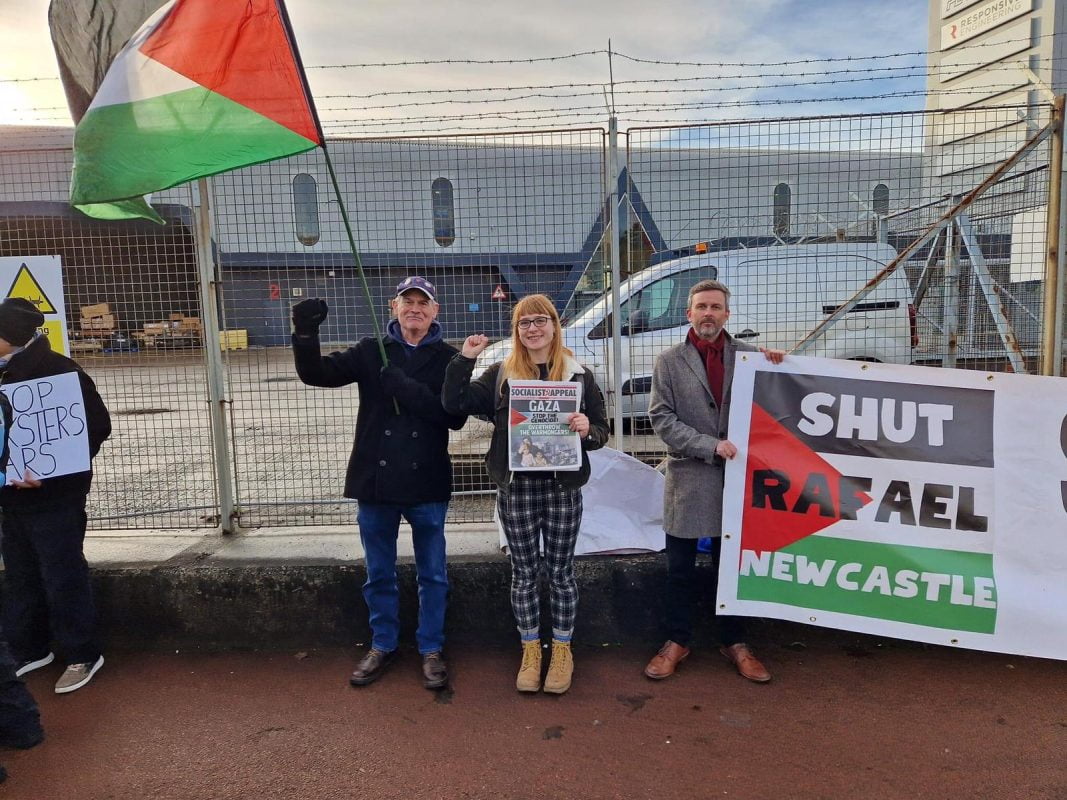
Interest within the campaign for agitating amongst the workers was scant, however.
In a speech at a January SDR demonstration, a leading campaigner suggested the Rafael workers were complicit in genocide.
On more than one occasion, protestors chanted ‘shame on you’, seemingly aimed at workers trying to enter the factory.
When we challenged this method, a prominent activist responded by likening the workers in the factory to scabs in a strike.
Blockades of the factory started to occur involving, on occasion, the workers’ vehicles being climbed on.
Anti-worker?
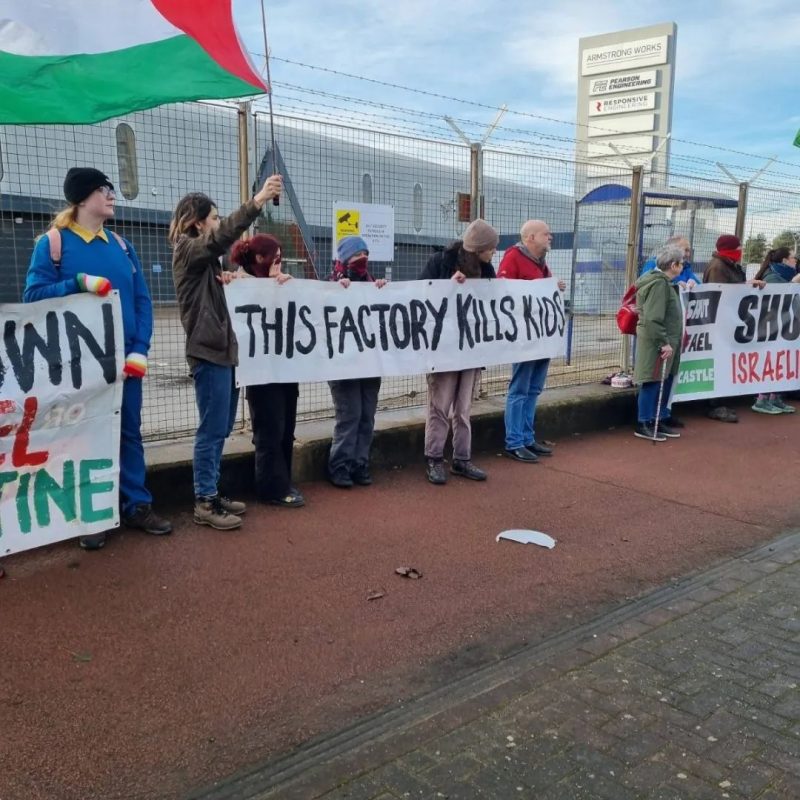
Our issue is that there has been no attempt to reach the workers within the factory to explain what is happening or try to engage them in the struggle.
Instead, from day one, there has been an ‘us and them’ dynamic, where the campaign comes in from outside, and where the brunt of the antagonism is directed at the workers.
When the building is blockaded, for example, the workers are on the receiving end. This could be a golden opportunity to hand them some literature. However, they have been met by chants of ‘shame on you’.
The campaign’s key demand and name is to shut down the factory. This would mean putting all the workers out of a job. With families to feed, and mortgages or rent to pay, it is unlikely that workers would be receptive to such an idea.
We demand that the factory should be repurposed, and the workers guaranteed their jobs.
We were pleased to see that in the last two weeks a leaflet has been produced for the workers, which puts forward the demand that “the factory and workforce are used to make technology that benefits humanity”.
Almost six months after the campaign started, however, it feels as if bridges have been burnt with the Rafael workers.
Substitutionalism
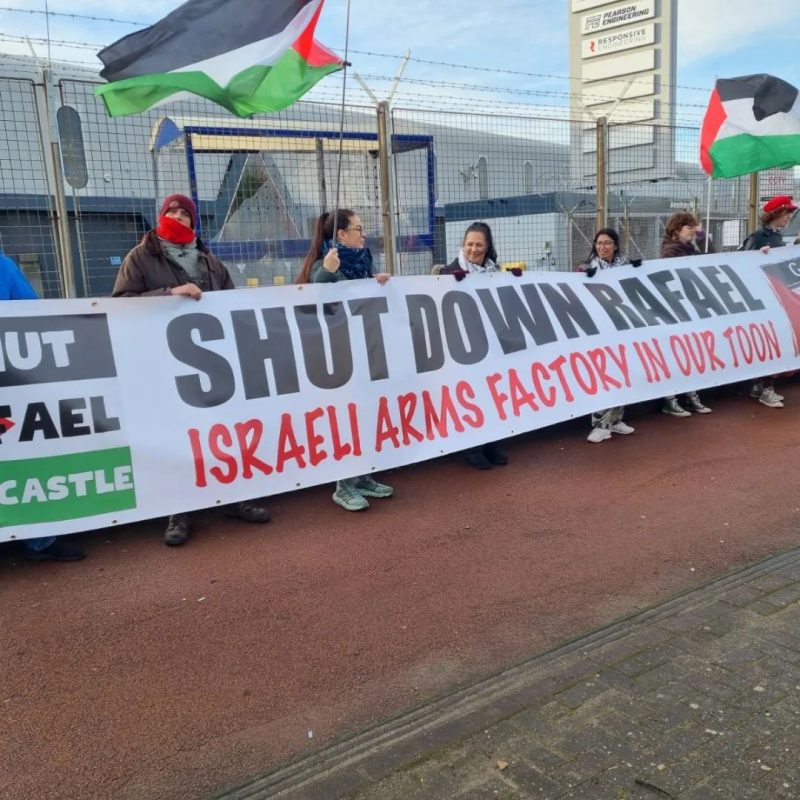
If the campaign had communicated with the workers, won them to our cause, and encouraged them to strike, not only would this particular producer have been shut down, it would also have sent shockwaves throughout the Palestine solidarity movement – showing the potential power workers hold through their role in production everywhere, and enormously raising their confidence.
This would not have been an easy route to take. But it would have been the most effective, had all forces been pointed to this line of attack.
Instead, SDR has taken a path of substitutionalism. This is where a group of activists take action in place of the workers themselves.
Such groups often come into direct opposition with workers, and become frustrated with them for having not reached the same radical conclusions.
We are unsure who the SDR campaign is aiming their demands towards. Is the aim to place moral pressure on the owners of the factory to close themselves down?
Clearly there is no way a factory owned by the Israeli state will shut itself down on such a basis. The only force that can call a halt to work at the factory is the workers on the inside.
Historical precedent
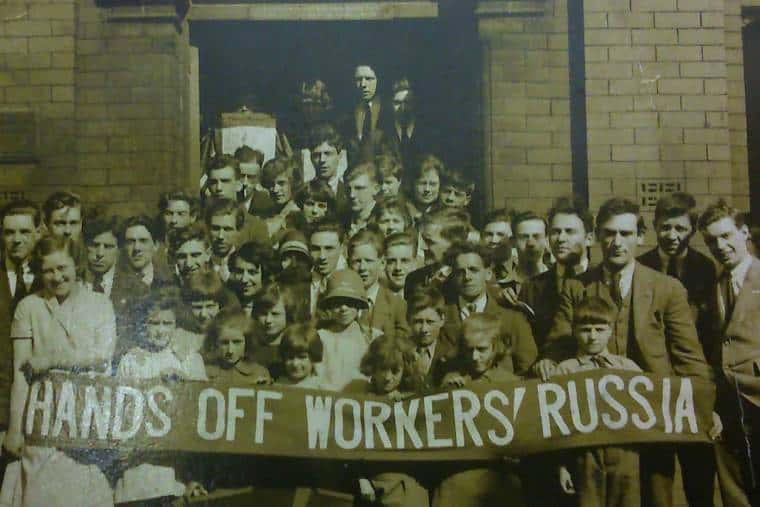
There is a rich history of workers in Britain acting on international instincts and organising to defend workers abroad.
Following the 1917 Bolshevik revolution in Russia, 21 foreign armies, including British troops, were sent to Russia to crush the Soviet government. British workers responded monumentally against ‘their’ reactionary government.
Sailors mutinied at naval bases on the south coast. Soldiers shot military police and formed organisational committees. Wildcat strikes broke out. The military even began to come over to the side of revolution.
A ‘Hands Off Russia’ national committee was established, pledging to agitate and prepare for a general strike unless the Allies withdrew from Russia. This had huge support from across the working class.
Campaigners appealed to London dock workers, who struck and refused to load an arms shipment bound for Poland. A week later, the dockers’ union decided to prevent all arms shipments destined for use against the Red Army.
But even in conditions of mass radicalisation, this campaign took months of patient work nationally: standing outside factory gates and agitating amongst workers. It wasn’t a quick victory.
Where next?
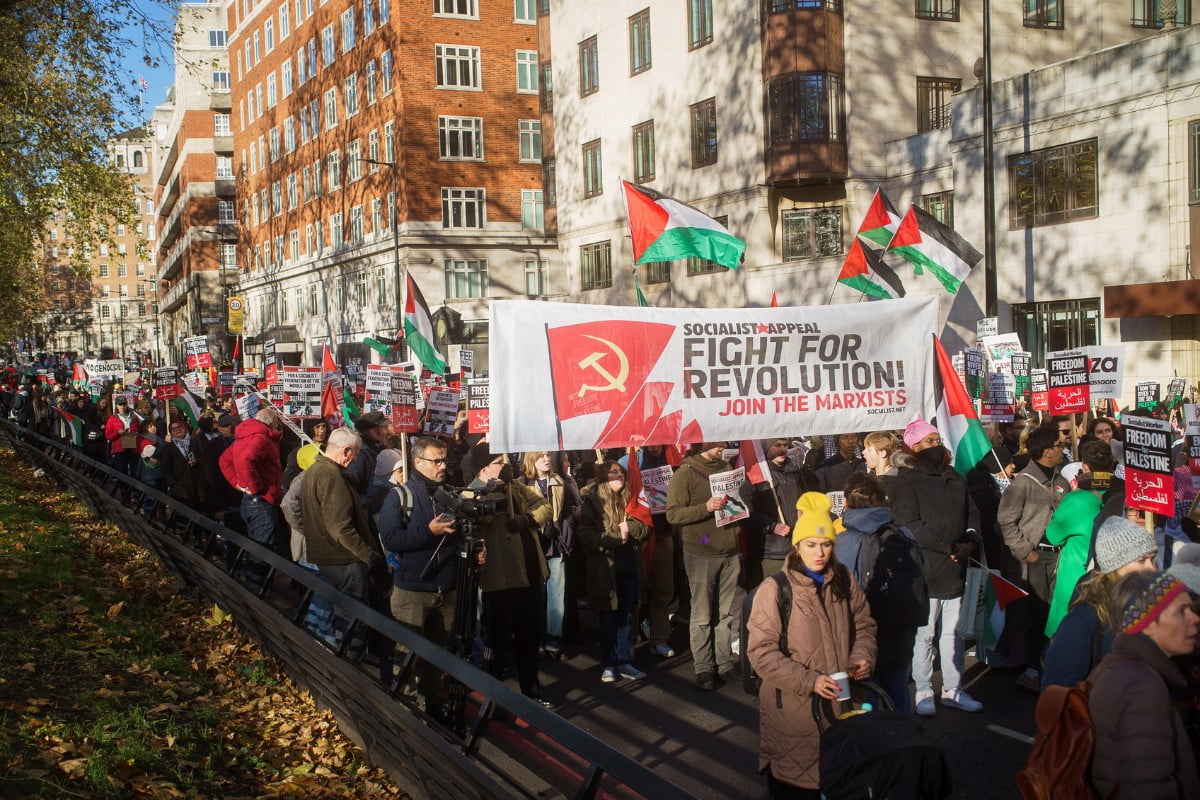
It has been suggested that ours is not a realistic perspective. But is it realistic that a group of external activists will manage to shut down a factory owned by the Israeli state? Will this campaign budge the Israeli war machine one bit?
The occupation of Gaza and the genocide of the Palestinian people is a consequence of Israeli and western imperialism. The US funnels $3.8 billion in military aid into Israel every year.
The only force that can seriously challenge these interests is the revolutionary movement of the working class – in the Middle East and across the wider world.
Here, we can fight ‘our own’ imperialists with revolutionary, class-based methods.
There is no shortage of disgust at capitalism here. The ruling class is despised. What we need is a programme and an organisation that can harness this anger and direct it at our own ruling class.
We are founding the Revolutionary Communist Party to work towards this aim. The role of our party is to go out into the class struggle and put forward these ideas.

